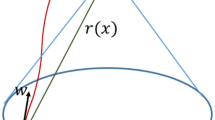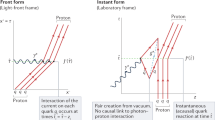Abstract
I CAN understand a good deal of H. D.'s courteous reply to my letter (NATURE, Nov. 24, p. 808), for example, that there are degrees in understanding. But much remains as to which I should like information. I know I am ignorant, but since my state of mind is almost universally representative, it is important. Is knowledge of the fact that clocks in rapid relative motion do not keep time derived from abstruse calculation, or from actual observation? If the latter, is there any explanation of that which seems to the ordinary man unaccountable? I assume that the swing of the pendulum of the clock in motion is not disturbed by its speed, or by a changing pull of gravity; for such alteration would be due to simple mechanical causes, easily explainable, and not due to what I suppose is meant by relativity—a mystical conception which appears to result in contradictions.
This is a preview of subscription content, access via your institution
Access options
Subscribe to this journal
Receive 51 print issues and online access
$199.00 per year
only $3.90 per issue
Buy this article
- Purchase on Springer Link
- Instant access to full article PDF
Prices may be subject to local taxes which are calculated during checkout
Similar content being viewed by others
Author information
Authors and Affiliations
Rights and permissions
About this article
Cite this article
REID, G. The Understanding of Relativity. Nature 122, 995–996 (1928). https://doi.org/10.1038/122995b0
Issue Date:
DOI: https://doi.org/10.1038/122995b0
Comments
By submitting a comment you agree to abide by our Terms and Community Guidelines. If you find something abusive or that does not comply with our terms or guidelines please flag it as inappropriate.



